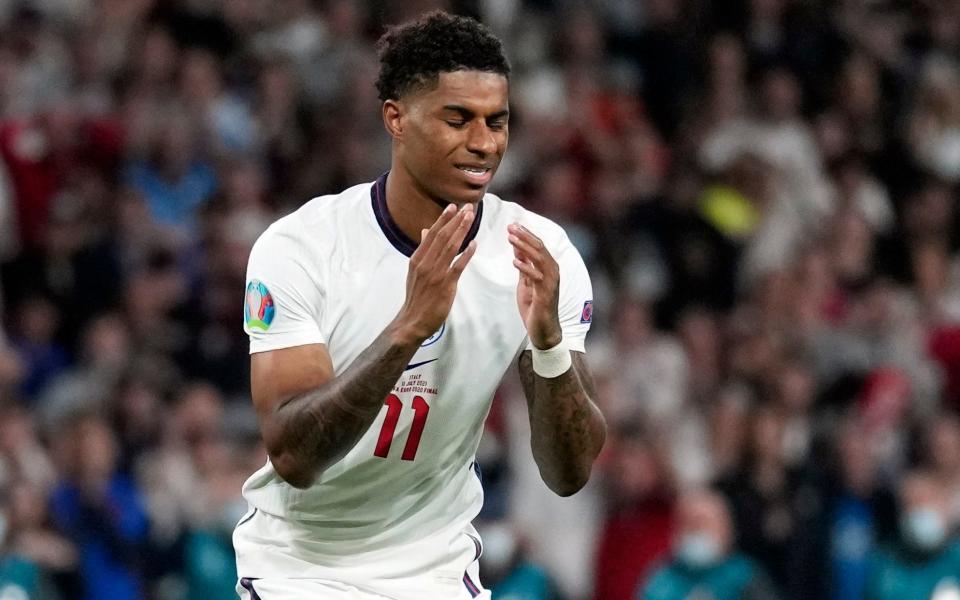Marcus Rashford and Bukayo Saka suffer worst abuse in Europe

Bukayo Saka and Marcus Rashford received the most racist attacks on social media at recent international finals - with a majority coming from home fans, a new study by Fifa has found.
The report does not name the Arsenal and Manchester United forwards, but sources confirmed research proved they suffered the most discriminatory attacks. The most detailed research into online abuse across Euro 2020 and the African Cup of Nations lays bare the torrent of toxic comments that players are targeted with. Fifa and Fifpro, the players' union, have now promised to launch new moderation tools to better protect players and improve educational support.
The independent report, published by Fifa to coincide with the UN's International Day for Countering Hate Speech, studied 406,987 comments on Twitter and Instagram before an after the finals. It found:
the majority of abuse was generated by trolls from the player's home nation
60 per cent of players received some form of discriminatory abuse at the two tournaments
Homophobic (40%) and racist (38%) comments provided the majority of the abuse
In response, Fifa and Fifpro said they will launch a "dedicated in-tournament moderation service across men’s and women’s football that will scan recognised hate speech terms published to identified social media accounts". "Although the offending message remains visible to the person who originally made the comment, its visibility and reach will be significantly reduced," the governing bodies added.
Fifa President Gianni Infantino expressed concern over the most detailed assessment of social media abuse in international football. “Our duty is to protect football, and that starts with the players who bring so much joy and happiness to all of us by their exploits on the field of play,” he said “Unfortunately, there is a trend developing where a percentage of posts on social media channels directed towards players, coaches, match officials and the teams themselves is not acceptable, and this form of discrimination – like any form of discrimination – has no place in football.”
England manager Gareth Southgate spoke last week how fear of a social media backlash would weigh heavily on his mind at the World Cup when he selects players for penalty shoot-outs.
Southgate was appalled by the racist abuse directed at black players Saka, Rashford and Jadon Sancho after they missed penalties in last year’s final against Italy.
“When I left The Grove [team hotel] that day [after England’s defeat in the final], I couldn’t help but feel, ‘Have I created this situation here for the boys?’” he said. “We’ve had 55 years of talking about penalties and everything else, so we’ve now got another layer that’s going to make it extremely difficult for us to win anything. Some of the boys have taken more with their clubs. Reece James has, I think, had four in shoot-outs this year. Trent [Alexander-Arnold] has had two. Bukayo has now taken a couple for his club, which were massively courageous moments that epitomised what he’s about.
“But indirectly, we have created another layer of difficulty in overcoming a penalty shoot-out. I have got to take all of those things into consideration and it is incredibly complex. We went through a process of preparing for penalties. We’ve definitely reviewed that. Psychology is a part of it and I have to be aware of all of those things.”
The research and pledges from Fifa also come after Jude Bellingham questioned whether authorities cared about the rising tide of bile that players were facing online. “You look at the run into that final and you felt as though the country had united,” Bellingham told CNN recently. “Then as soon as they missed a penalty, they were not English, just black. Anyone can miss a penalty. Anyone can make a mistake in their line of work. But to be criticised like that should never happen. They are human.”

 Yahoo News
Yahoo News 